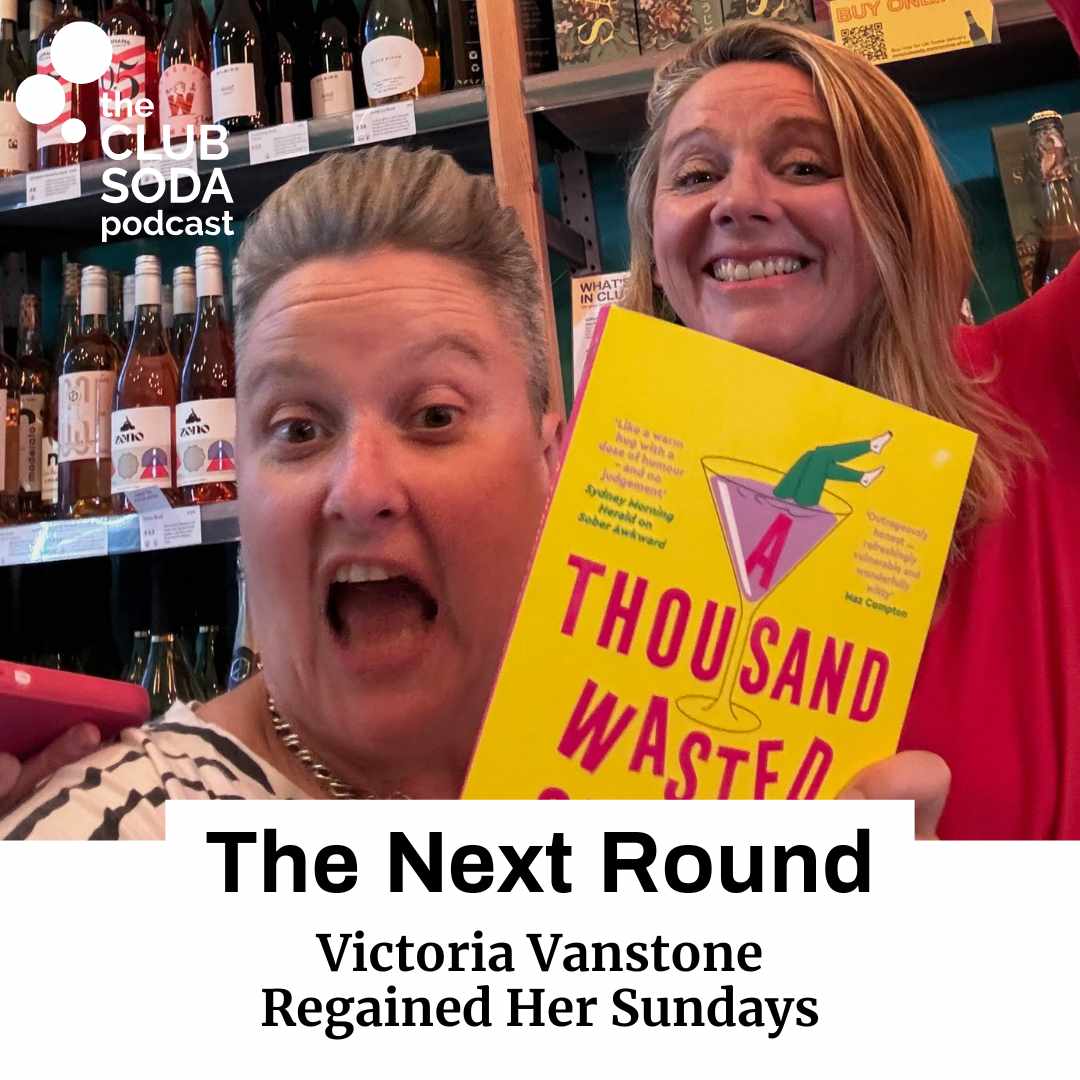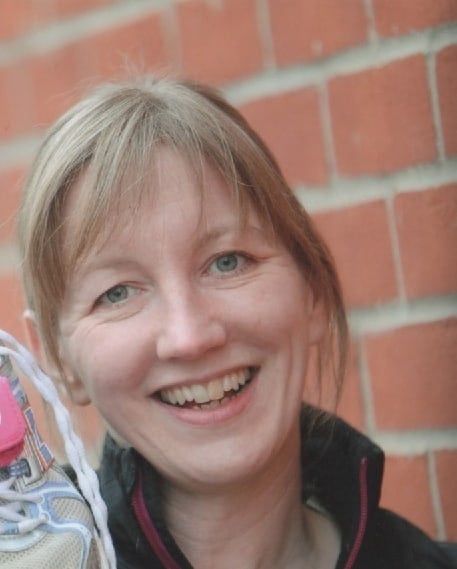
This website uses cookies to improve your experience. We'll assume you're ok with this, but you can opt-out if you wish. Read More
The Next Round: What happens after you change your drinking?

This guest blog about drinking guilt is by Louise Rowlinson, who writes a regular blog at A hangover free life about her life after quitting alcohol. Among her many accomplishments, she is a public health nurse, psychology graduate, and creator of an online course to cut down your drinking.
When I used to drink the drinking threw in a free gift of a helping of guilt and shame on the side – how kind! Guilt is the emotion that we feel when we have behaved in a way that we perceive to be hurtful to others or as a moral lapse. Guilt serves a purpose when we recognise, acknowledge and rectify the behaviour, such as apologising if necessary. The thing is that when I was drinking, sometimes I didn’t remember the behaviour so what I got left with was guilt’s big brother, shame.
Shame is the emotion that we feel when ‘we’ as a person are at fault, not our behaviour. It is the way we feel if we have fallen short of our own internalised ideals or if there is public disclosure of perceived weakness or defect. For me shame was the fast track path to self-loathing, failing self-esteem and crushed self-confidence and it was hard not to feel shame as I felt like I couldn’t control my drinking and therefore my behaviour. If I couldn’t manage this there was something wrong with ‘me’ right?
But if you drink alcohol, which is addictive and designed to make you thirsty (so you drink more) and acts as a disinhibitor (encouraging behaviour that you would not normally engage in) then how is that a weakness or defect in yourself? Now I’m not handing total responsibility for my actions over to the booze monster as the choice to pick up the first drink was always mine. What I didn’t fully choose was the addiction created by the substance to go on drinking to the point of total blackout, guilt making antics and no memories to attach the guilt too, therefore, leaving me with an overwhelming sense of shame. And then I would drink to forget the shame compounding the problem. Shame, drink, shame, lather, rinse, repeat.
The leading expert and queen of shame research is Brene Brown who I love. Her PhD is in shame research (watch her Ted Talk “Listening to Shame” here).
What her research found was that shame is highly correlated with addiction. Shame is my wolfie voice telling me that I’m ‘never good enough’ and I can’t do life sober. Shame is my wolfie voice saying ‘who do you think you are’ to blog about my sober journey thinking people would be interested in what I have to say.
This is the most toxic of emotions and now I don’t drink I don’t really experience it like I used to anymore. I know that I can do life sober and have done it for over five months. I know that people are interested in what I have to say because they take the time to read my blog and comment. My wolfie voice of shame has gone quiet and this gift is perhaps bigger than the gift of no hangover. The no hangover is the physical gift of not drinking but the diminished feeling of shame is the psychological gift of sobriety. And the two go hand in hand for me as part of the hangover distress was the angst caused by the shame. In the words of Brene, for shame to survive it needs secrecy, silence and judgement (of self or of others). Choosing not to drink and this blog is the answer to resolving my shame and I would choose this option hands down every day over drinking now ![]()
PS If you’ve not seen the original Brene Brown TED talk on vulnerability, you can find it here.
This website uses cookies to improve your experience. We'll assume you're ok with this, but you can opt-out if you wish. Read More
| Name | Domain | Purpose | Expiry | Type |
|---|---|---|---|---|
| wpl_user_preference | joinclubsoda.com | WP GDPR Cookie Consent Preferences. | 1 year | HTTP |
| PHPSESSID | www.tickettailor.com | PHP generic session cookie. | 55 years | HTTP |
| AWSALB | www.tickettailor.com | Amazon Web Services Load Balancer cookie. | 7 days | HTTP |
| YSC | youtube.com | YouTube session cookie. | 55 years | HTTP |
| Name | Domain | Purpose | Expiry | Type |
|---|---|---|---|---|
| VISITOR_INFO1_LIVE | youtube.com | YouTube cookie. | 6 months | HTTP |
| Name | Domain | Purpose | Expiry | Type |
|---|---|---|---|---|
| _ga | joinclubsoda.com | Google Universal Analytics long-time unique user tracking identifier. | 2 years | HTTP |
| sbjs_migrations | joinclubsoda.com | Sourcebuster tracking cookie | 55 years | HTTP |
| sbjs_current_add | joinclubsoda.com | Sourcebuster tracking cookie | 55 years | HTTP |
| sbjs_first_add | joinclubsoda.com | Sourcebuster tracking cookie | 55 years | HTTP |
| sbjs_current | joinclubsoda.com | Sourcebuster tracking cookie | 55 years | HTTP |
| sbjs_first | joinclubsoda.com | Sourcebuster tracking cookie | 55 years | HTTP |
| sbjs_udata | joinclubsoda.com | Sourcebuster tracking cookie | 55 years | HTTP |
| sbjs_session | joinclubsoda.com | SourceBuster Tracking session | Session | HTTP |
| Name | Domain | Purpose | Expiry | Type |
|---|---|---|---|---|
| mailchimp_landing_site | joinclubsoda.com | Mailchimp functional cookie | 28 days | HTTP |
| __cf_bm | tickettailor.com | Generic CloudFlare functional cookie. | Session | HTTP |
| NID | google.com | Google unique id for preferences. | 6 months | HTTP |
| Name | Domain | Purpose | Expiry | Type |
|---|---|---|---|---|
| _ga_10XZMT03ZM | joinclubsoda.com | --- | 2 years | --- |
| AWSALBCORS | www.tickettailor.com | --- | 7 days | --- |
| cf_clearance | tickettailor.com | --- | 1 year | --- |
| VISITOR_PRIVACY_METADATA | youtube.com | --- | 6 months | --- |
Join Club Soda for 10% off your first order of drinks for UK delivery. Plus get our latest news and special offers for members to choose better drinks, change your drinking and connect with others.
If you get an error message with this form, you can also sign up at eepurl.com/dl5hPn